By Larry Majewski
Imagine it’s 1949. You’re staying at one of Door County’s premier properties, the Alpine Resort in Egg Harbor. Your day oscillates between the golf course, the beach and a wicker chair flipping through Life Magazine. It would take an extra special kind of effort for work to reach you via phone. Your normal life is left behind because you are on vacation. You don’t even need to think about where your next meal is coming from, as dinner is served promptly at 6 o’clock right there at the resort — every night.
Even if you want to go out, it’s not as though there are alternate dining venues in town. Your only decisions to contemplate are: how many cocktails before dinner and whether the Chicken a la King or Liver & Onions sounds better. Hey, you’re not driving tonight so you might as well have another vodka gimlet with dinner. The band starts playing at 8 o’clock. The band? It’s actually more like a small orchestra.
These self-contained, autonomous evenings played out across the peninsula at classic resorts like Maxwelton Braes in Baileys Harbor, Hotel Thorpe in Fish Creek, Hotel Du Nord in Sister Bay, and Anderson Hotel in Ephraim. The scenario sounds more like a modern day cruise ship experience than a vacation in Door County. There was little need to venture out since everything was taken care of right there on-property. Visitors were relieved of the burden of choice while enjoying vacation lengths two to three times longer than today.
Other than the occasional wedding band or a special event, house bands and live music are things of the past at Door County resorts. Like so many other amenities of the old days, a century’s worth of trends, styles and fashions have come and gone. Eventually, all that is left are some buildings full of memories. To wit, there’s a room full of artifacts just off the main lobby at Alpine Resort that is one of the best little museums (that’s not technically a museum) in the entire county.
When The Alpine Resort was put up for sale last year, the entire county took notice. It was the end of an era, some said. As of this writing, the specific future of the Alpine Resort is uncertain, providing plenty of fodder for speculative conversation amongst locals. What just about everybody can agree upon is that the property won’t remain the same whenever it changes hands. In that way, Alpine Resort is symbolic of the sea change in Door County. At a certain point we run out of euphemisms (classic, vintage, historic, antiquated) and places disappear.
Progress
Folks like to say things change at a glacial pace in Door County. In reality change on the Peninsula happens in fits and starts. A decade can roll by with nary a new building or business. Visitors are lulled into thinking the villages around the peninsula are static postcards. Then, in a burst of activity, Sister Bay buries its power lines and opens up the Highway 42 corridor to a host of new businesses. Egg Harbor invites rubbernecking with its sudden ‘skyline’ of new construction. Even Ephraim, a village committed to preserving its appearance, is uncharacteristically adding a sidewalk and burying its power lines.
Visitors derive some comfort believing things haven’t changed around the peninsula. They remember going to Al Johnson’s in Sister Bay as children and seeing the goats on the roof. Those adorable livestock are still on display, nowadays with a year-round goat cam. Charm can go a long way.
Supper clubs and taverns bridged the gap between the golden era of resorts and today. The Greenwood Supper Club in Fish Creek is one of the last of its breed in Door County. The vinyl booths and wood paneling almost compel the diner to order an Old Fashioned. The authenticity of taverns like AC Tap in Baileys Harbor and Bayside Tavern in Fish Creek (affectionately known as The Tap and The Bayside to locals) is stamped every time you hear the crack of bar dice against the bar top. These are the establishments carrying the torch for the Door County of yore.
When Wild Tomato Pizza in Fish Creek opened its doors over a decade ago, it was the bellwether for a new era of restaurants. Wild Tomato took over an existing pizza space, Digger’s, which was best known for its proximity to Peninsula State Park’s main entrance. Wild Tomato, however, had a novel concept: wood-fired pizzas, hand-tossed crusts, an interesting beer list and an array of unique, sometimes local ingredients. It doesn’t seem earth-shattering now, but people were suspicious of these new-fangled pizzas, until they tried them. Now there are three Wild Tomato pizzerias in Door County.
When Parador in Egg Harbor received 3.5 stars from the Milwaukee Journal Sentinel in 2011 and Wickman House in Ellison Bay received 3 stars a few years later, there was a sense that the dining scene was changing. The Journal Sentinel hadn’t reviewed a Door County restaurant since the turn of the last century. Suddenly, these upstart restaurants were legitimized. In the cases of Parador and Wickman House, ideas were being brought directly from urban dining landscapes like Chicago and NYC. Historic buildings served as backdrops for an exciting mash-up of old and new. It’s this genre of restaurant that gets the attention of visitors looking for variations in the habitual haunts of decades past.
The array of cuisines available to the Door County visitor today would be unthinkable a dozen years ago. Food and Wine Magazine ran a story in October, 2018 with the title “We Can’t Believe How Cool Door County Is Being Right Now.” The author was absolutely gobsmacked, not believing that places like Trixie’s, Ephraim Coffee Lab, Roots Inn & Kitchen, Island Orchard Cider, Wisconsin Cheese Masters and Wickman House existed in Door County — a peninsula he thought he knew well. If today’s visitor thinks about it too long, he or she can be flummoxed by the multitude of choices.
Hereafter
Does a place still have its same identity even as individual components of the whole change? This is the paradox of change in Door County. Local legends die. Decades-old restaurants change hands and then change their overall ‘concept.’ Cottages are replaced by condos. Even the iconic Eagle Tower in Peninsula State Park had came down. A local groundswell of support and money ensured that Eagle Tower will be replaced. But will it be the same?
Luckily for Door County visitors, its natural splendor changes on a geological time scale. The shorelines, the state parks, the sunsets and wildlife should remain largely unchanged. Regardless of age, every restaurant now seems to be drifting toward sourcing locally and incorporating sustainable practices. It isn’t impossible to imagine a future consisting of Door County businesses on the forefront of sustainability, acting greener than any of their big city counterparts. Pilot programs are underway around the county that focus on composting food waste, eliminating all plastic and styrofoam usage, and conserving water in real, measurable ways. Perhaps true green behavior will be the next big thing. There will be a day when food not prepared in a SLO (Sustainable, Local, Organic) manner may seem as anachronistic as a house orchestra. Maybe a harmonious relationship with the environment is the next wood-fired pizza. If businesses continue to operate with an eye toward the future, there will never be a bygone Door County to miss. A rising tide lifts all boats.
L-R: Carroll House, Inn at Cedar Crossing, Coyote Roadhouse, McEvoy’s Culinaria, The Creamery, Fred & Fuzzy’s, Harbor Fish Market, Jamaican Door, MacReady Bread Co., Shipwrecked, Shoreline, Sister Bay Bowl, Stabbur Scandinavian Beer Garden, Summer Kitchen, Taco Cerveza, The Cookery, Trixie’s, Waterfront, White Gull Inn, Wickman House.

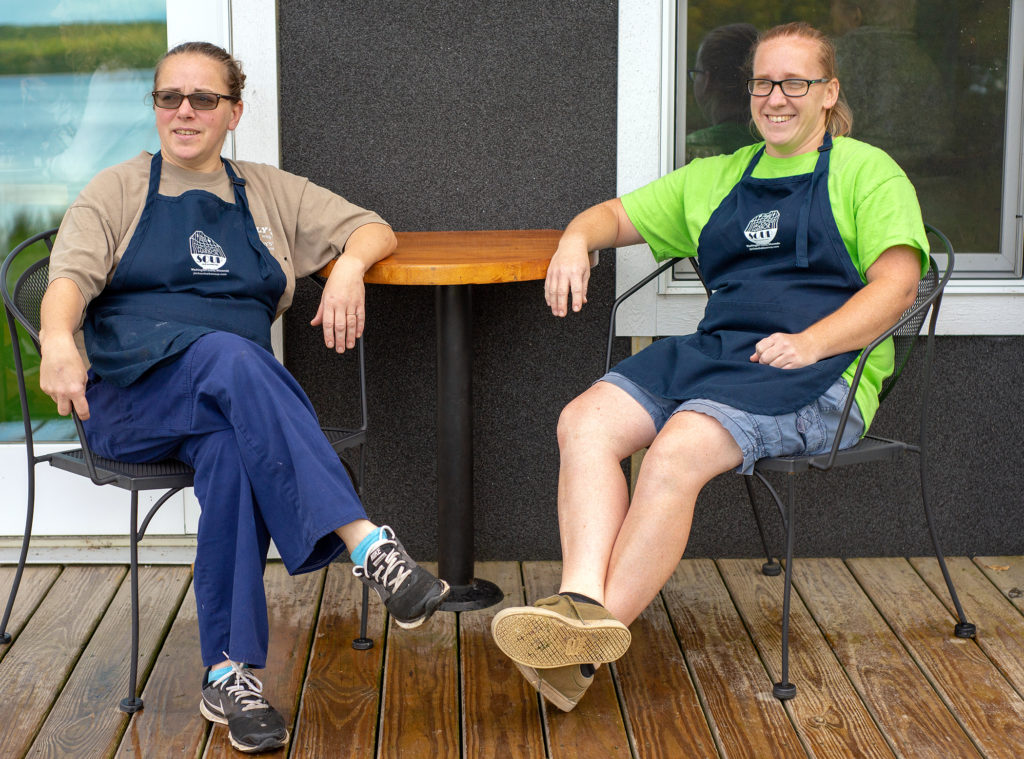
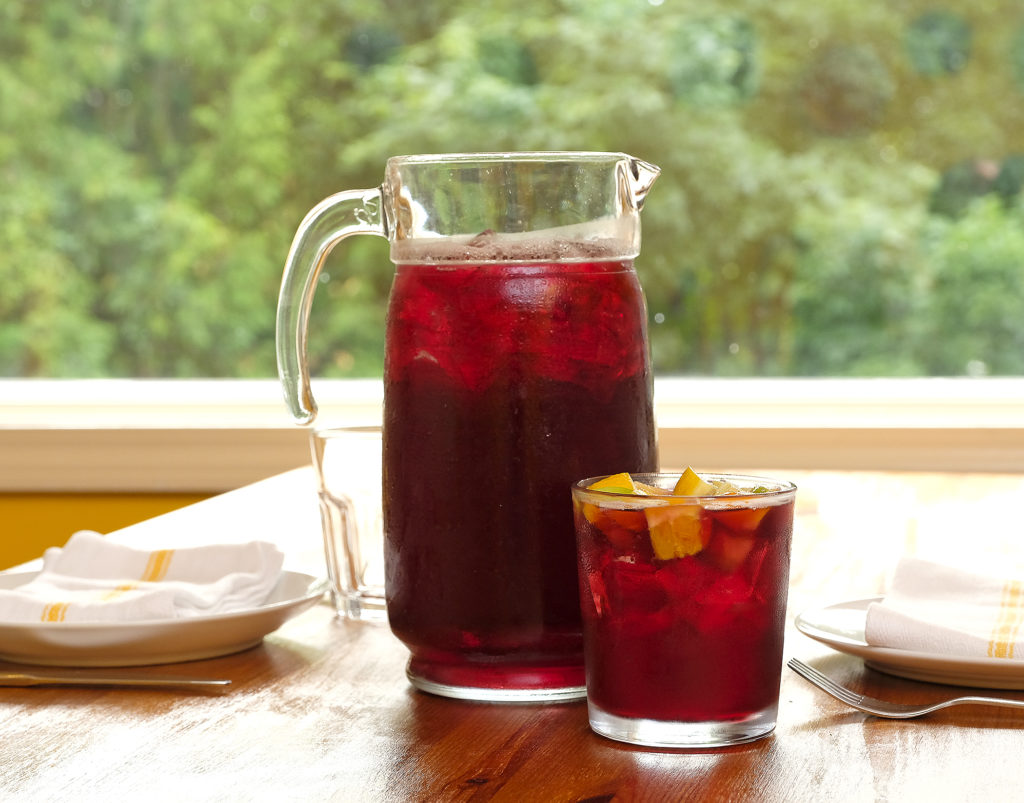
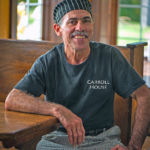




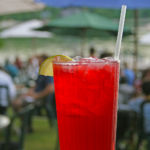

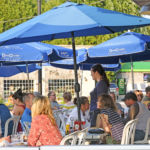
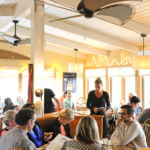

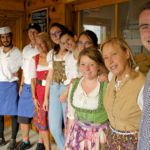









 ALL CONTENT © 2024 BY DOOR GUIDE PUBLISHING
ALL CONTENT © 2024 BY DOOR GUIDE PUBLISHING




